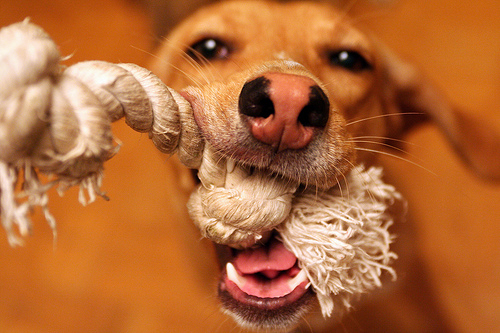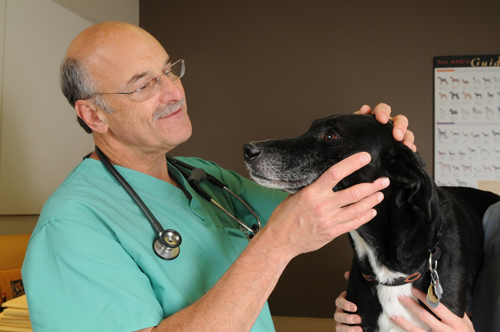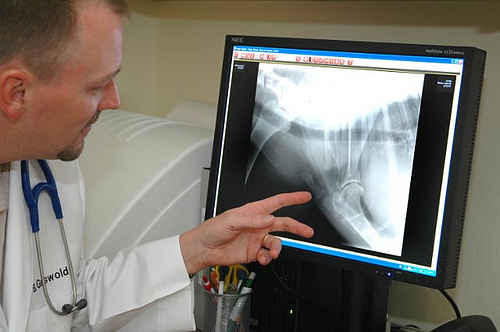First, a common law claim against a dog owner may be pursued in addition to a claim brought under Washington?s specific dog bite statute. The two types of claims are not mutually exclusive. Thus, a bite victim can pursue both common law and statutory violations against the dog owner. This only means that there are two theories being alleged to impose liability. It does not give a victim the right to collect any additional damages.
Under Washington common law, a person who keeps or harbors a dog, and who knows or should reasonably know the dog has vicious or dangerous propensities likely to cause the injuries complained of, is strictly liable for the injuries caused by the dog regardless of negligence committed by either the keeper of the dog or the injured person.
Any injury caused by such an animal subjects the owner to strict liability without the need to prove that the dog owner was negligent. The term ?negligent? requires that you prove the dog inflicted injury due to the owner?s failure to exercise reasonable and ordinary care.
Thus, a dog owner may be held liable for a dog bite if it can be proved that the owner merely had some prior knowledge of the dog?s dangerous tendencies. It is not necessary to prove that the owner acted unreasonably or that the owner was careless?only that the owner knew that his or her dog was potentially dangerous to people. The courts have also stated that it is irrelevant how the dog became unusually dangerous, i.e., whether the injury happens intentionally or inadvertently, or whether it is due to the dog?s heredity.
Washington common law does not restrict liability only to the dog ?owner.? The law makes it clear that anyone who ?keeps or harbors? the dog can be liable for injuries and damages inflicted by the dog as long as that person had prior knowledge of the dog?s viciousness. The term ?harbor? has been defined as one who protects the dog and keeps or treats the animal as his own. Thus, anyone who watches or keeps a dog, despite not being the dog?s true owner, can still be liable for injuries inflicted by the dog if you can show that person had prior knowledge of the dog?s dangerous tendencies.
Under Washington common law, it is not necessary for a dog to have previously bitten someone for its owner to be presumed to have knowledge that it was likely to do so. The only requirement is that the dog owner had some knowledge of a trait or propensity of the animal likely to cause the accident or injury complained of. This means it is not necessary to show that the dog has previously inflicted the same kind of injury as the current injury. For example, if the owner previously knew that the dog liked to growl and snarl, or bare its teeth at people, then this may be enough evidence to hold the owner liable for injuries if the dog later attacks and bites a person.
Negligence Washington common law also permits an action against the owner of a dog based on a theory of negligence. The term negligence means that a person has failed to exercise reasonable and ordinary care under the circumstances, giving rise to injuries or damages. Thus, if you can show that the dog bite was caused by the owner?s failure to exercise ordinary care in some way, then the dog owner is legally responsible for the injury. Also, if the owner failed to restrain or care for the dog in a particular manner and that omission was a proximate cause of the injury inflicted by the dog, then the owner is liable for the harm.
One example of a negligent dog owner is someone who knew that his dog had a propensity to jump on people and then failed to exercise ordinary care to prevent this conduct from happening. If the owner?s failure to control his dog was a cause of harm to another person, then a claim for negligence may exist. In that situation, the owner is responsible for any injuries and damages inflicted by the dog. It is also important to remember that a theory of negligence can be asserted in addition to theories of common law strict liability (i.e., the dog owner had prior knowledge of the dog?s dangerous propensity) and a violation of the dog bite statute. Again, these three legal theories of recovery are not mutually exclusive (i.e., they can all be asserted in the same case against the dog owner).

 How NOT to Bore Your Pet
Tips and tricks to entertain your lonely four-legged hous
How NOT to Bore Your Pet
Tips and tricks to entertain your lonely four-legged hous
 Kidney Failure in Dogs
Kidney failure has it origins in a wide variety of
Kidney Failure in Dogs
Kidney failure has it origins in a wide variety of
 The Physical Exam: What to Expect at the Veterinarian's Office
By T. J. Dunn, Jr., DVM
It is alway
The Physical Exam: What to Expect at the Veterinarian's Office
By T. J. Dunn, Jr., DVM
It is alway
 Caring for Your Pet’s Skin During the Winter Season
By the time we reach adulthood, most of us have d
Caring for Your Pet’s Skin During the Winter Season
By the time we reach adulthood, most of us have d
 Bone Cancer in Dogs
By T. J. Dunn, Jr., DVM
Bone cancer
Bone Cancer in Dogs
By T. J. Dunn, Jr., DVM
Bone cancer